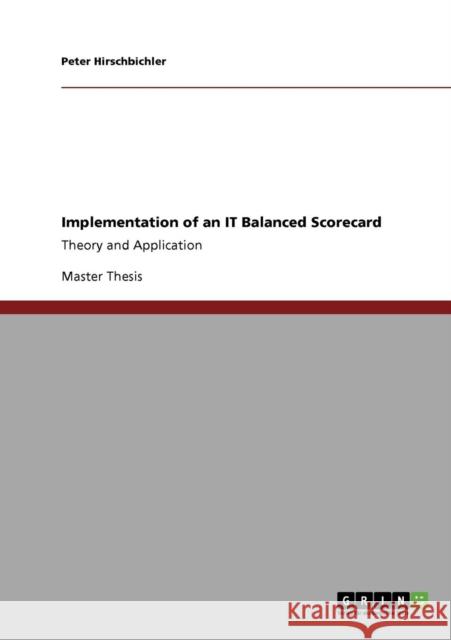Implementation of an IT Balanced Scorecard: Theory and Application » książka
Implementation of an IT Balanced Scorecard: Theory and Application
ISBN-13: 9783640813186 / Angielski / Miękka / 2011 / 60 str.
Master's Thesis from the year 2009 in the subject Business economics - Business Management, Corporate Governance, grade: 1, University of Salzburg (International Executive MBA General Management (Upgrade)), language: English, abstract: Information technology (IT) plays a major role in today's companies. Although, in most firms IT does not generate the core customer value itself, it rather supports creating additional customer value or enables cost efficiency of business processes. This is why IT departments are viewed in most cases as service centres of companies, providing a defined set of services for as low costs as possible. But, service centres should still strive to provide only these services which are necessary for supporting the company's strategy. In the beginning of information technology, IT departments defined the quality and quantity of services provided for the firm. Also, innovations concerning IT, evolved mostly within the IT department. This was because only IT-staff has known the range of possibilities IT was able to offer. A major problem of the IT department defining the quality of service was that many improvements have been made for the sake of IT only and have not been aligned to the strategy of the company. Therefore, many resources of a company have been wasted in IT departments. However, for today's businesses it is essential that IT enables only corporate strategies in order to remain effective. Caused by the current financial crisis, uncertain times for businesses are expected. This makes strategy alignment and execution of IT departments even more significant in order to stay efficient and effective. But, a recent survey carried out by McKinsey & Company shows that there are still enormous potentials for improving the performance of IT departments. For example the survey shows that the basic services are met quite well by many IT departments, but the big challenges for supporting the business, still remain. Also, 67% of all respond











